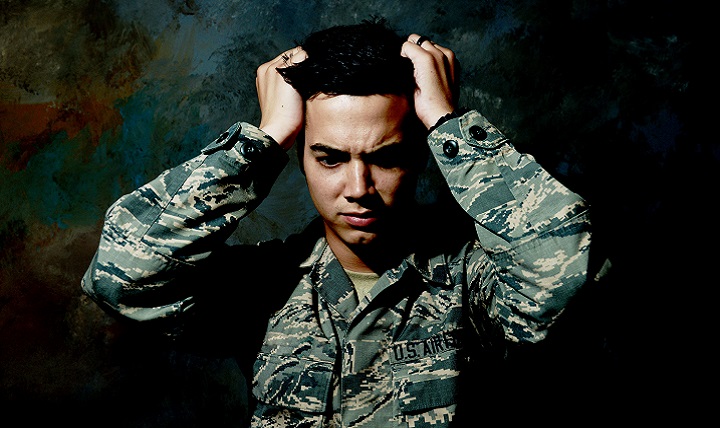
This past week has seen the commemoration of the 100th anniversary of the end of World War I, hosted by President Emmanuel Macron of France. In parts of France, there is still a so-called Red Zone which cannot be entered because unexploded shells, now a century old, are still buried in its terrain. So, in the area around Verdun, site of the war’s most remembered battle, are some 80,000 to 100,000 bodies from soldiers slain in it and never recovered.
Wars do not truly end. They bleed into each other. The First World War was a result of the Franco-Prussian War of 1870 and the alliance system it bequeathed that divided Europe into hostile camps. World War I was not, as President Woodrow Wilson fondly hoped, the war to end all wars, but the first chapter in what, twenty years later, would be a new and yet greater war. World War II, which divided Europe again and also much of Asia, would be the mother of all wars since, including those in Korea and Vietnam, the Arab-Israeli wars, the war over the breakup of Yugoslavia and the present war in Ukraine.
War breeds war. It never makes for peace. And wars come home, no matter how far the noncombatants may be from the battlefield. We have learned that twice this month.
Four million men and women have rotated in and out of our wars in Afghanistan and Iraq since 9/11. Two of them now give us pause.
Brent Taylor, a 39-year-old father of seven and the mayor of the small town of North Ogden, Utah, was killed in Afghanistan in what was overall his fourth tour of duty there and in Iraq. Taylor didn’t die in battle; our remaining troops in Afghanistan are rarely exposed to combat, their principal task now being the training of Afghan soldiers. He was killed in an insider attack, as such events are called when Afghan soldiers (or Taliban or Al Qaeda infiltrators; it’s often hard to tell the difference) turn on their American handlers. Almost half the American deaths in Afghanistan now occur in such attacks.
Here’s a question: what are we doing training Afghans to defend their own country after seventeen years of warfare? And here’s another: what is a father of seven with a community to serve doing on such a fool’s errand after three previous tours of duty?
The war in Afghanistan was a diversion to begin with; the chief state actor in the 9/11 attacks against us was Saudi Arabia. It was effectively abandoned when the George W. Bush administration secretly diverted funds appropriated for it to the planned war in Iraq. Since then, it has continued only because successive American presidents have not had the courage to concede its failure. After seventeen years, the Taliban now control more of Afghanistan than at any time since 9/11. Both the Obama and Trump administrations have sought to negotiate a face-saving compromise that would enable us to proclaim, if not victory, then at least mission accomplished. Apparently, the Taliban prefer to fight. The Afghan army — and its American sponsors — are an easier target than the warlord armies and terrorist competitors they would otherwise face.
So, why did Brent Taylor go back to Afghanistan? Friends tried to dissuade him. He’d done his part, they told him. Taylor’s reply was that he’d fallen in love with Afghanistan and its people. It would be idle and unseemly at this point to dispute this. But I think we’ve heard the one about bringing freedom and democracy to a faraway land before. And all of Taylor’s five brothers had also enlisted after 9/11. You wouldn’t want to be the family shirker. Perhaps, too, there is a simpler explanation. Perhaps Brent Taylor had become a warrior. I can’t know; perhaps no one can. What I do know is that he died in a long-lost war that the politicians have been too cowardly to end. In that sense, he was not only a casualty but a victim of it.
I think it disservices Brent Taylor to call him a hero, as even the editorial page of The New York Times has done. Of course, all the fallen soldiers of our misbegotten wars have been so anointed. It is a way of dodging the truth, which is that unjust wars aren’t justified on the backs of the dead. There were nine million soldiers who died in World War I. They all died in vain.
Another soldier came back from Afghanistan. Ian David Long said he wanted to go there to kill people. It was a much more straightforward explanation than most. When Long came home, he apparently hadn’t had enough. A week and a half ago, he shot up a bar and grill in Thousand Oaks, California, and killed twelve people before turning his gun on his real target, himself.
How many Ian Longs are there, actually or potentially, in the four million soldiers who’ve fought our wars in Afghanistan and Iraq? How many more are there, maimed in body and spirit, whom we dismiss with the sterilized diagnosis of Post-Traumatic Stress Disorder? They’ve been to hell, and some of them have brought it back with them.
We are a country of violence that lives in a climate of violence. Some of us would prefer that this wasn’t so. But the bodies pile up, day-by-day and month-by-month, here and far away.


